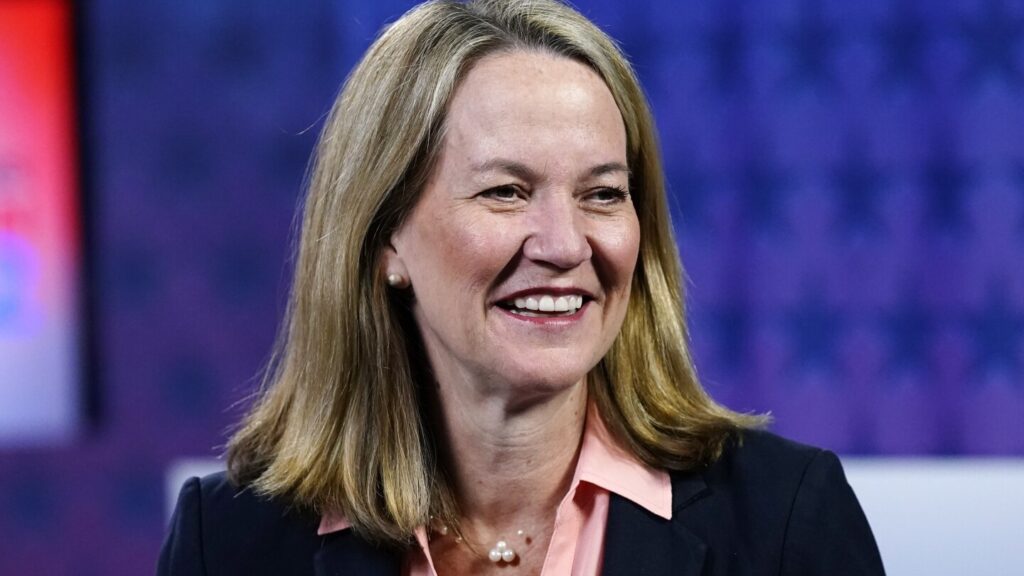PHOENIX (AP) — A three-day hearing concluded Wednesday on whether to dismiss charges against Republicans accused of plotting to overturn the results of Arizona’s close 2020 presidential election. The defendants argued their actions were constitutionally protected free speech, but prosecutors argued their case was not politically motivated.
What was the incident about?
Maricopa County Superior Court Judge Bruce Cohen is considering requests to dismiss fraud, conspiracy and forgery charges from at least 12 of the 18 people indicted in April in the case, including 11 people who filed documents falsely claiming that Donald Trump won the Arizona election over Joe Biden, two former Trump aides and five lawyers with ties to Trump, including Rudy Giuliani.
Trump was not charged but was mentioned in the indictment as an uncharged co-conspirator.
According to the indictment, Giuliani pressured Maricopa County officials and state legislators to change the election results and urged the state’s Republican electors to vote for Trump in mid-December 2020. According to the indictment, Giuliani spread false claims of election fraud in Arizona and hosted a rally in downtown Phoenix, alleging that officials made no effort to determine the accuracy of the presidential election results.
Prosecutors say the case is not politically motivated
Prosecutor Nicholas Klingerman told the judge Wednesday that the indictment was issued by an Arizona grand jury and that prosecutors’ charges were not motivated by any animosity toward Republicans.
“This indictment is simply enforcing the law against those who allegedly committed fraud, forgery and conspiracy to change the outcome of a lawful election because they were dissatisfied with the outcome,” Klingerman said. “And like all criminal indictments, this indictment is intended to punish past conduct, educate the public and deter future attempts to do the same thing.”
“The fact is that the state asked the grand jury to consider not indicting more Republicans than it actually indicted,” Klingerman added. “The state asked the grand jury to consider not indicting Donald Trump.”
In a statement released after the hearing, Arizona Attorney General Chris Mays, a Democrat, said the defendants’ allegations were an attempt to “distract from the facts of this case and confuse the public.”
“Let me be clear: the prosecution in this case is not politically motivated,” Mays said.
The defense sued on the basis of freedom of speech
The defense argued that Mays used the indictment to silence his client’s constitutionally protected speech about the 2020 election and actions taken in response to its results.
On Wednesday, they cited an Arizona law that prohibits the use of frivolous legal measures to silence critics, and said Mayes had shown bias against Trump and his supporters by publicly vowing to investigate fake electors during the campaign.
What laws are the lawyers citing?
The law in question, commonly known as the anti-SLAPP statute, long offered protection from civil lawsuits until it was amended by the Republican-led Legislature in 2022 to cover people facing most criminal charges.
The law provides that in lawsuits involving the lawful exercise of certain rights, such as speech, individuals may file a motion to dismiss the lawsuit and must prove that the lawsuit is “substantially motivated” by “the intent to restrain, retaliate, or prevent the lawful exercise of a constitutional right.”
According to a spokesman for Mays, the anti-SLAPP law has not been used in criminal cases since it was amended in 2022.
Prosecutors have argued that Arizona law doesn’t apply to the case, but the judge on Wednesday questioned Klingerman about illegal acts allegedly committed by the defendants.
“I’m really concerned about the difference between words and deeds,” Cohen said.
When will a judge decide on a motion to dismiss the case?
Cohen said Tuesday he would rule on each claim separately, possibly at different times, but did not say when he would rule on Wednesday.
Jenna Ellis, a former Trump campaign lawyer who worked closely with Giuliani, entered into a cooperation agreement with prosecutors that resulted in the charges against her being dropped. Republican activist Lorraine Pellegrino pleaded guilty to a misdemeanor and received probation, becoming the first person to be convicted in the Arizona case.
The remaining defendants have pleaded not guilty and their trial is scheduled to begin on January 5, 2026.
Mark Meadows, President Trump’s former chief of staff, is seeking to move his lawsuit to federal court, but his lawyers say they will seek to have the charges dismissed.
___
Associated Press writer Gabriel Sandoval in Phoenix contributed to this report.



